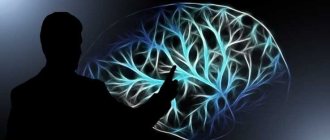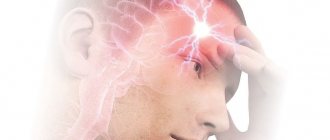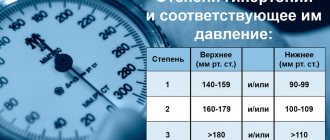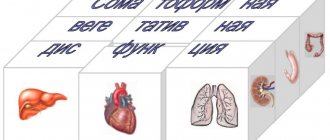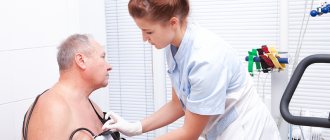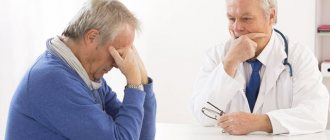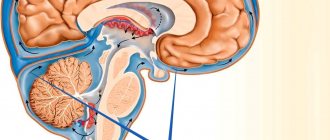Organic lesions of the central nervous system are a group of various neuropsychic disorders that develop as a result of the influence of various pathological factors on the brain at different stages of ontogenetic development. This pathology has many variations and different development mechanisms.
Pathogenesis and, accordingly, clinical manifestations of cerebral-organic disorders depend on:
- from the causes of the defeat;
- the period in which the brain damage occurred;
- localization, intensity and depth of damage to brain structures;
- the time that has passed since the onset of the disease that led to brain damage.
If unfavorable factors impact the fetus at the embryonic stage of development, severe developmental defects incompatible with life may occur.
Damage to the central nervous system can occur in a child at different periods: during fetal development (antenatal), during childbirth (intranatal) and after the birth of the child (postnatal).
The classification of organic lesions of the central nervous system in children in the modern world is usually based on the causes and mechanisms that can lead to damage to the central nervous system in newborns or older children. According to this classification, there are 4 groups of perinatal central nervous system disorders:
- traumatic lesions of the central nervous system in newborns. Such a case is a leading accompanying factor in damage to the tissues of the central nervous system during childbirth or the first hours of a child’s life;
- hypoxic damage to the central nervous system: the main factor of damage is lack of oxygen;
- toxic-metabolic and dismetabolic lesions of the central nervous system in newborns: the damage factor in this condition is a metabolic disorder in the child’s body during the prenatal period;
- damage to the central nervous system in children due to infectious diseases: the main damaging effect is exerted by an infectious agent (usually a virus).
Causes
Damage to the central nervous system in children can occur at the embryonic stage of development, during childbirth, and also after birth. Among the reasons are:
- Somatic diseases of the mother, taking medications, stress and bad habits during pregnancy, previous infectious diseases, pathologies of pregnancy;
- Birth injuries, immaturity of the woman’s body, pathological course of childbirth;
- Head injuries in children, neuroinfections, strokes, tumors of the brain and spinal cord.
Opening hours: 8:00 to 20:00
Telephone
Sign up
Organic brain damage
Symptoms of organic brain damage in children
The main sign of organic brain damage in children is psychoorganic syndrome. This condition is expressed in a violation of three aspects of brain function at once.
- Problems with memory - the child does not remember new information well and loses some of what has already been learned (partial amnesia). Moreover, with OPM, unreal (invented) memories may appear.
- Decreased intelligence - such children have difficulty concentrating, their thinking is impaired, and they have difficulty oriented in space.
- Affective disorders and reduced neurodynamics - children with organic brain lesions constantly experience weakness, dizziness and headaches, they are susceptible to depression and irritability. Children often display inappropriate emotions and “out-of-control” behavior.
- Delayed speech and intellectual development is another symptom of organic brain damage, which is characterized by impaired cognitive activity. This condition is not congenital, like mental retardation, but acquired. The functions of a child's damaged brain begin to disintegrate. Sometimes the developmental delay is so severe that the child cannot learn to care for himself.
There are also a number of focal symptoms , which depend on the area of the brain in which the disorders are localized.
Frontal lobe – facial and ocular muscles are paralyzed, the sense of smell is impaired and words are difficult to pronounce, difficulty performing purposeful movements, strange behavior on the verge of euphoria.
The parietal lobe is a violation of sensitivity, the inability to perform purposeful, meaningful actions, as well as the inability to learn reading and counting. Seizures with convulsions are common.
Temporal lobe - impaired sense of smell and hearing, problems with taste, there are hallucinations, emotionally unstable mood, partial or complete misunderstanding of speech.
Occipital lobe – visual impairment up to blindness, problems with coordination of movements and balance, hallucinations, convulsions during seizures.
Naturally, therapy and correction of APM should be prescribed based on the cause of its occurrence and development. For example, doctors recommend eliminating lesions caused by infection with the help of antibiotics, antiviral drugs and immunostimulants. If APM has developed as a result of a tumor, then, first of all, care must be taken to remove it. You can't argue with that.
Official medicine suggests treating ischemic diseases of the brain with nootropic drugs , as well as using decongestant and vascular therapy.
It is imperative to remember that drug therapy cannot but have side, sometimes harmful, consequences .
Eliminating the consequences is often more difficult and longer than the main violation.
But even in the case of successful drug therapy, you CANNOT do without psychological and correctional therapy.
If your child:
- very picky and capricious in choosing food
- reacts sharply to weather changes
- he gets carsick
- he's inattentive
- speaks poorly
- restless
- cries often
- clumsy
- lazy
Do you think that all these are character traits? In fact, these are neurological problems that may be associated with organic brain damage. If these violations are ignored now, then in the future they can cause serious behavioral disorders, speech delays and general development, and subsequently difficulties in learning at school.
The fact is that at an early age the consequences of many neurological disorders can be easily corrected and forgotten about them forever. But in adolescence, small problems often turn into big ones and are already very difficult to cope with.
Therefore, it is better not to postpone a visit to a neurologist and neuropsychologist.
It is especially important to conduct neuropsychological diagnostics in children before entering grade 1, to identify and correct neuropsychological disorders in a timely manner so that children do not develop “school failure”, which will affect not only the learning process, but also the psychological state of the child.
For example, in the temporal lobe of the left hemisphere there are areas “responsible” for the sound analysis of speech. If neuropsychological tests that check the state of this area of the brain are performed incorrectly, it is possible not only to diagnose its immaturity, but also to predict the occurrence of certain types of errors in speaking, writing, reading and remembering information.
Treatment of organic mental disorders
Treatment for organic mental disorders depends on the underlying cause. Drug treatment or rehabilitation therapy may be given to help patients regain function in the parts of the brain affected by OPD.
Advice: in order to reduce the percentage of a child’s lag in mental and speech development, it is recommended to surround him with positive emotions, attention, love, as well as an active speech environment: fairy tales, cartoons, songs, reading books, commenting on his actions (to develop the child’s subject-personal connections).
Types of ZPR on a residual organic background:
- catatonic - they are characterized by problems associated with motor skills or muscle malfunction;
- mood disorder - deep emotional problems may be caused by an organic mood disorder, which can cause depression or mania;
- anxious - those who have problems with anxiety in public places;
- dissociative - characterized by problems with awareness, identity, memory, perception, or a combination of these;
- emotionally labile - wild mood swings in both directions;
- personal - associated with problems that lead to the fact that people do not fit into most of society in an extreme form;
- post-concussion syndrome - problems that can occur after a concussion due to a blow to the head;
- unspecified - the entire spectrum of syndromes that are not listed above can be classified as unspecified, but are just as serious.
Diagnostics and treatment in our clinic
An experienced neurologist at our clinic will analyze the patient’s complaints and perform a detailed examination. Diagnosis of central nervous system diseases necessarily includes an assessment of the patient’s consciousness, his reflexes, intelligence, etc.
Some diseases are easy to identify by their symptomatic manifestations, but, as a rule, an accurate diagnosis is only possible based on the results of additional studies. In our practice, we use the most modern diagnostic equipment, which allows us to conduct such high-precision studies as:
- computed tomography of the brain;
- ultrasound examinations;
- angiography;
- electroencephalography;
- radiography;
- electromyography;
- lumbar puncture, etc.
Treatment of each disorder of the central nervous system requires a strictly individual and careful approach. The doctor selects therapy, but it should be understood that some disorders are not reversible, so treatment can be purely supportive and symptomatic.
The main method of treating diseases of the central nervous system is medication, but physiotherapeutic procedures, therapeutic exercises and massage also have a good effect. Surgical treatment may be indicated when cysts and tumors are detected. As a rule, all operations are performed using modern microsurgical techniques.
F03 Dementia, unspecified
Presenile:
- dementia NOS
- psychosis NOS
Primary degenerative dementia NOS
Senile:
- dementia: - NOS - depressive or paranoid type
- psychosis NOS
If necessary to indicate senile dementia with delirium or acute confusion, use an additional code.
Excludes: old age NOS (R54)
More details
How to restore brain function?
At the initial stage, the root cause of the pathology is established, which requires prompt elimination. If exposure to infectious pathogens is detected, targeted antibacterial or antiviral agents are used. Hemorrhagic stroke involves surgical removal of the source of internal hemorrhage. Ischemia is treated with medications.
The brain in degenerative diseases cannot fully recover; prescribed drugs only reduce the rate of destruction of neural connections. The development of methods for treating Parkinson's disease and Alzheimer's disease is still underway. Mental changes can be corrected under the influence of nootropics and psychotherapy. In case of severe disturbance of emotional balance, tranquilizers and drugs that improve sleep are recommended.
Evaluation of therapy effectiveness
After treatment and rehabilitation, it is necessary to undergo systematic re-diagnosis.
It allows you to monitor recovery processes, the rate of tissue regeneration, if instrumental intervention was performed, exclude or confirm relapses and adjust the treatment strategy.
You can undergo the examination using special equipment, which not all clinics in the city have. You can find the nearest MRI clinic on the website of the Unified Registration Center. Select the name of the procedure, compare offers from medical institutions, mark the best ones and sign up for a scan by phone on the page.
Cooperation with the service is free, all users are provided with a special discount on diagnostics.
Infectious diseases of the central nervous system
There are a fairly large number of agents that can cause damage to the central nervous system. The main ones are the Coxsackie virus, herpes infection, ECHO. They can provoke the occurrence of meningitis, arachnoiditis, and encephalitis. The central nervous system can also be affected by HIV infection, when the disease is in its final stage. It most often manifests itself in the form of abscesses and leukoencephalopathies.
Mental disorders provoked by infectious pathology can manifest themselves as follows:
— Asthenic syndrome : weakness, fatigue, significant decrease in performance. — Complete or partial psychological disorganization. — Affective disorders. — Violations of personality integrity. — Psychoses: paranoid, hypochondriacal, hysterical. — Intoxication
Intoxication can be caused by uncontrolled use of drugs, alcohol, nicotine, as well as poisoning by mushrooms, salts of heavy metals, and carbon monoxide. Poisoning is also possible with an overdose of drugs. Clinical consequences depend on the specific substance used. The development of neurosis-like disorders is also possible.
If poisoning occurs due to the use of diphenhydramine, atropine, and various antidepressants, it manifests itself as delirium. If a psychostimulant was used, intoxication paranoid is possible. Characteristic for this type of intoxication are visual, auditory and tactile hallucinations and delusions. A manic-like state is also possible, which is manifested by euphoria, sexual and motor disinhibition, and accelerated thinking processes.
If intoxication is chronic, the patient will encounter the following manifestations:
— Exhaustion, lethargy, hypochondria, a noticeable decrease in performance, various types of depressive disorders. — Memory impairment, decreased intelligence level, attention impairment. — Vascular diseases
Vascular diseases of the brain include:
- Hemorrhagic stroke. - Ischemic stroke. - Encephalopathy.
Hemorrhagic stroke occurs due to blood seeping through the walls of blood vessels or a rupture of an aneurysm. As a result, hematomas are formed. Ischemic stroke occurs due to blockage of a vessel by a blood clot, an atherosclerotic plaque. As a result, a lesion is formed that is deprived of a sufficient amount of oxygen and nutrients.
Discirculatory encephalopathy can develop with hypoxia, which is chronic. At the same time, a large number of lesions are formed throughout the brain. reasons that provoke the development of tumors in the brain :
— Genetic predisposition. — Exposure to chemicals. — Ionizing radiation.
Today, doctors are actively discussing the likelihood of the negative impact of bruises, cell phones and various injuries to the head.
If vascular pathology , various mental disorders may develop. As a rule, they directly depend on the location of the outbreak. As practice shows, they most often occur when the right hemisphere is affected.
They can appear in the form of:
— Cognitive impairment (to disguise this impairment, patients use notebooks where they record all the necessary information). — Significant reduction in the level of criticism of one’s own condition. - Prolonged depression. - Sleep disorders. — Manifestation of aggressive behavior. - Asthenic syndrome. — Vascular dementia
Separately, it is worth considering vascular dementia . Today it is divided into several types:
- Stroke-related. - Non-stroke. — Variants caused by disturbances
Patients with the pathologies described above have rigidity of all or most processes and their lability. There is also a significant decrease in the range of interests. The severity of cognitive impairment is determined by a number of characteristics, which may even include the age of the patient.
Demyelinating disease
One of the main diseases is multiple sclerosis. The lesions are formed with the destruction of the membranes of the nerve endings.
Mental disorders may include the following:
— Increased levels of fatigue, weakness, significant decrease in performance. — There is a decrease in intelligence, memory, and absent-minded attention. - Affective insanity. - Depression. — Neurodegenerative diseases
Alzheimer's disease and Parkinson's disease may fall into this category . Symptoms usually appear in old age.
Depression is the most common condition in Parkinson's disease. It is accompanied by a deep feeling of emptiness, emotional poverty. A person’s ability to feel joy and enjoyment also decreases. A person may behave overly aggressively, become sad, or show unjustified pessimism. Depression can be supplemented by various anxiety disorders (in 70% of patients).
Alzheimer's disease is a degenerative disease that causes marked decline in cognitive function, as well as changes in behavior and personality structure. People with Alzheimer's disease are unable to recognize familiar objects, familiar people, and are forgetful and confused. They quickly fall into a state of depression, experience disorientation, anxiety, and emotional distress.
Organic mental disorders: conditions and symptoms
Symptoms of organic mental disorders vary depending on the type of disorder the patient is suffering from. For example:
- Those who suffer from bipolar disorder will experience severe mood swings, ranging from feelings of euphoria to feelings of despair.
- Those with autism will have problems with social development.
- People diagnosed with schizophrenia often experience delusions and hallucinations.
A qualified psychiatrist can accurately determine the type of organic mental disorder a patient is suffering from based on the symptoms presented.
In some cases, organic mental disorders can be diagnosed using blood tests, EEG, MRI and CT scans. Unfortunately, laboratory tests cannot always diagnose mental retardation on a residual basis, and patients must rely on the assessment of a qualified psychiatrist to obtain an accurate diagnosis. A psychiatrist can evaluate a patient by providing a comprehensive psychological evaluation and asking the patient to answer various questionnaires.
F05 Delirium not caused by alcohol or other psychoactive substances
An environmentally nonspecific organic cerebral syndrome, characterized by simultaneous disturbances of consciousness and attention, perception, thinking, memory, psychomotor behavior, emotions, sleep-wake cycles. The duration of the condition varies and the severity ranges from moderate to very severe.
Included: acute or subacute:
- brain syndrome
- state of confusion (non-alcohol etiology)
- infectious psychosis
- organic reaction
- psychoorganic syndrome
Excludes: delirium tremens, alcoholic or unspecified (F10.4)
More details
